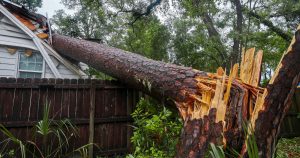A study conducted by the University of California, Riverside, focused on the healthcare access of marginalized populations in unincorporated communities in the United States-Mexico borderlands, specifically in eastern Coachella Valley. Led by Ann Cheney, the research team interviewed 36 Latinx and Indigenous Mexican caregivers of children with asthma or respiratory distress from September to December 2020. The study found that these communities lack basic critical infrastructure, including healthcare access, highlighting the impact of geography on the health of low-income populations.
The U.S.-Mexico borderland is home to nearly 2.7 million Hispanic or Latinx individuals, many of whom are immigrants in the colonias with limited English proficiency, health literacy levels, and income. The study revealed that foreign-born caregivers prefer to take their children across the border for respiratory healthcare, as they perceive Mexican-based physicians to provide a diagnosis and treatment plan that significantly improves their children’s health. Caregivers in the U.S. feel that American physicians do not provide adequate information due to language barriers and dismissive attitudes towards their concerns, leading to disparities in children’s respiratory health based on legal documentation status.
Participants in the study shared the challenges they face in accessing pediatric specialty care for their children’s respiratory health problems, including the distance they need to travel and the lack of communication with physicians during medical visits. The communities in Mecca, Oasis, Thermal, and North Shore are particularly vulnerable to environmental hazards such as toxic water and dust from the Salton Sea, agricultural pesticide exposure, and waste processing facilities due to their proximity to agricultural fields. These environmental factors contribute to the high incidence of poor respiratory health in these communities, further exacerbated by limited access to primary and specialty healthcare services.
The research team emphasized the concept of structural violence, where individuals are unable to meet their basic needs due to social structures and institutions that prevent access to healthcare. They argued that understanding the complex interplay between geography, borderlands, and health is crucial for effective public health policy and interventions. The study sheds light on the experiences of Latinx and Indigenous Mexican caregivers navigating the healthcare system in the U.S.-Mexico borderland, seeking care for children with asthma or respiratory distress across the border.
The researchers highlighted the importance of geography as a structural determinant of health for marginalized populations in unincorporated communities in the borderlands. The study revealed the challenges faced by caregivers in accessing adequate healthcare services for their children’s respiratory health, especially for those without legal documentation status in the U.S. The team called for greater attention to environmental injustices and healthcare disparities in these communities, emphasizing the need for targeted public health interventions and policies to address the complex interplay between geography, borderlands, and health. The study was funded by the National Institutes of Health/National Institute of Minority Health and Health Disparities, underscoring the significance of research in addressing health disparities in vulnerable populations in the U.S.-Mexico borderlands.





